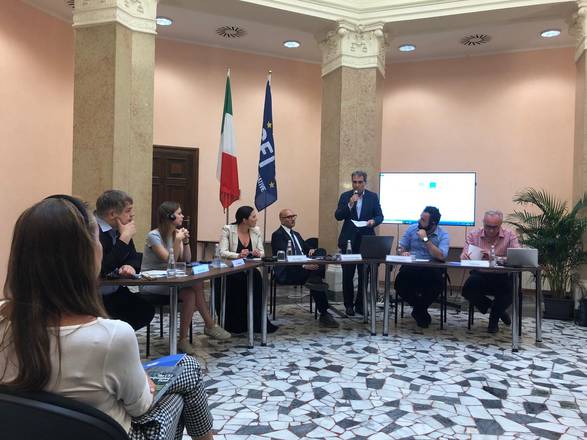(ANSA) - TRIESTE, JULY - A "difficult" situation, in which
finding "independent media" often still remains a chimera and
investigating may "cost you your life". That's the bleak picture
of journalism in the Balkan area and in central and eastern
Europe that emerged in Trieste during the meeting "Being a
journalist today in Albania, Montenegro and Ukraine", organized
by the CEI (Central European Initiative), in collaboration with
the ANSA editorial office of Friuli Venezia Giulia and in
partnership with the South East Europe Media Organization
(SEEMO), as part of the Prize for High Merits in Investigative
Journalism and the annual South East Europe Media Forum.
Maya Sever, a reporter at HRT Croatian public TV and chairman
of the Croatian journalists' union, underlined that "compared to
6-7 years ago, before the country's EU membership, the situation
worsened and continues to deteriorate, especially in terms of
censorship".
The picture in Albania is even more complex. "We, journalists
- explained Remzi Lani, director of the Albanian Media Institute
- live like in the jungle: in freedom, of course, but still in
difficult conditions". The situation is not so very different in
Montenegro, where journalists must "find a creative way to do
their job in a professional way", said Ivan Cadjenovic, a
reporter at the daily Vijesti. In a country where "the socialist
party of Milo Dukanovic has been ruling for 30 years - he added
-, touching on some issues, such as security, can be very hard".
Then, Ukraine, where "independent journalism continues to grow,
but the situation remains critical and, in particular, for those
who investigate being a reporter can be a very dangerous job",
explained the Ukrainian journalist Anna Babinets, who takes part
in the Organized Crime and Corruption Reporting Project (OCCRP).
(ANSA).
© Copyright ANSA - All rights reserved














